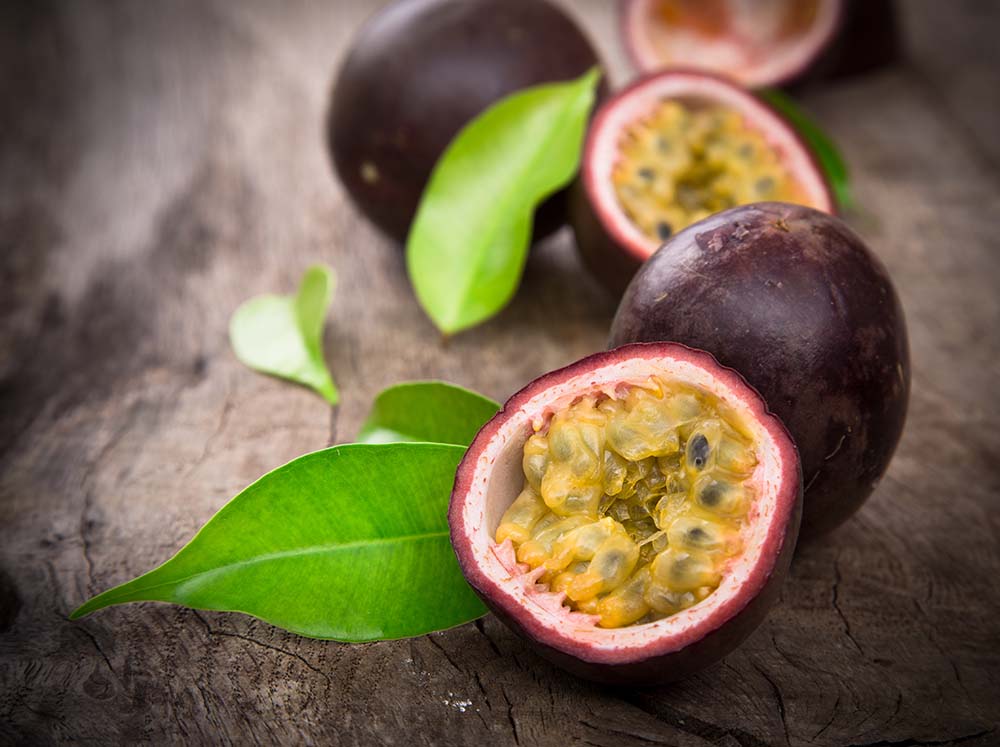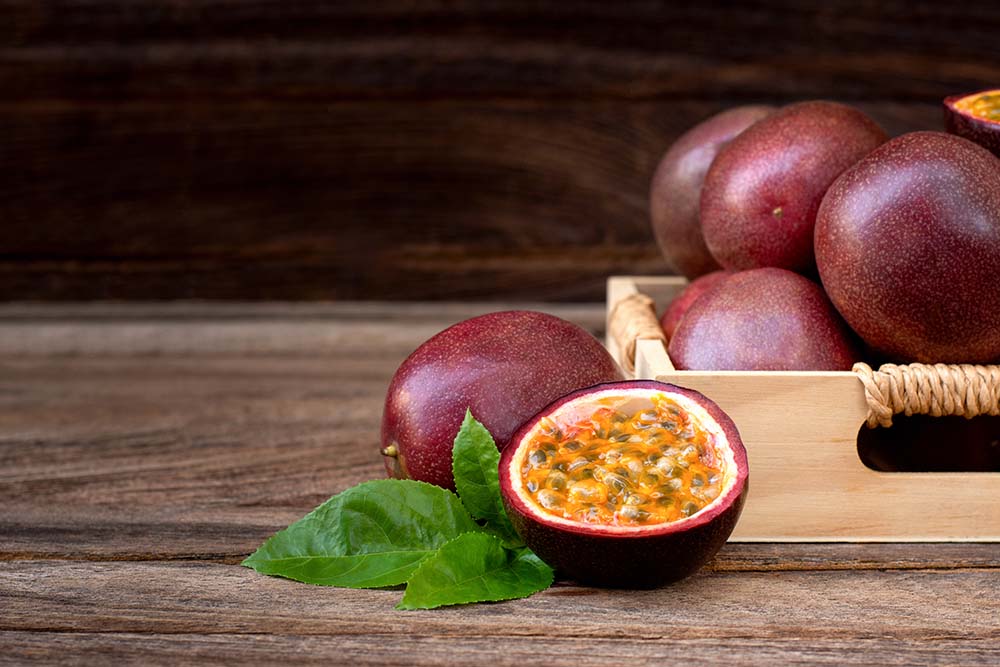Passion fruit is a tropical fruit that comes in different colours and sizes. It is rich in vitamins, minerals and antioxidants, making it a superfood that is beneficial to the body. This fruit has a sweet and tangy taste and can be eaten raw or added to salads, smoothies and desserts. It is also used in making jams, jellies and syrups.
Passion Fruit Benefits
Vitamin A
One of the main benefits of passion fruit is its high vitamin A content. This vitamin is essential for maintaining healthy eyesight, skin, and immune system. Passion fruit contains 2,640 IU of vitamin A per 100 grams, which is 88% of the recommended daily intake. Eating passion fruit regularly can help improve your overall health and prevent vitamin A deficiency.

Vitamin C
Another vital nutrient that passion fruit is rich in is vitamin C. This vitamin is essential for maintaining a healthy immune system and protecting the body against infections and diseases. Passion fruit contains 30 mg of vitamin C per 100 grams, which is 33% of the recommended daily intake. Consuming passion fruit can help reduce the risk of chronic diseases such as heart disease and cancer.
Fibre
Passion fruit is an excellent source of fibre, which is crucial for maintaining a healthy digestive system. Eating fibre-rich foods can help prevent constipation, reduce the risk of colon cancer and promote weight loss. Passion fruit contains 10.4 grams of fibre per 100 grams, which is 37% of the recommended daily intake.
Nutrients
Passion fruit is packed with nutrients that are essential for maintaining optimal health. It is an excellent source of potassium, magnesium and iron, which are essential minerals for the body. These minerals help regulate blood pressure, promote muscle and nerve function and prevent anaemia. Additionally, passion fruit is low in calories and high in water content, making it an excellent fruit for weight management.
Antioxidants
Passion fruit is loaded with antioxidants that help protect the body against oxidative stress, which can lead to chronic diseases such as cancer, heart disease and Alzheimer's disease. These antioxidants help neutralize free radicals, which are unstable molecules that can cause cellular damage. Passion fruit contains high levels of polyphenols, carotenoids, and flavonoids, which are powerful antioxidants that help boost the immune system and promote overall health.
Passion Fruit Risks
While passion fruit is generally safe for consumption, some people may be allergic to it. Symptoms of passion fruit allergy include itching, swelling of the lips, tongue and throat, and difficulty breathing. If you experience any of these symptoms after consuming passion fruit, seek medical attention immediately. Additionally, passion fruit contains a substance called harmine, which can interact with certain medications such as antidepressants and monoamine oxidase inhibitors (MAOIs). If you are taking any of these medications, consult your doctor before consuming passion fruit.
How to Eat Passion Fruit
Passion fruit is a versatile fruit that can be consumed in different ways. Here are some ways to eat passion fruit:
Eat it raw: Slice the passion fruit in half and scoop out the flesh with a spoon. You can eat the seeds as well, which add a crunchy texture to the fruit.
Juice it: Blend the passion fruit with water and a sweetener of your choice to make a refreshing juice.
Add it to salads: Cut the passion fruit into small pieces and add it to your favourite salad for a sweet and tangy flavour.
Make a dessert: Use passion fruit in your favourite dessert recipes, such as cheesecake, pavlova or ice-cream.
Spread it on toast: Mix the passion fruit with honey or jam and spread it on toast for a delicious breakfast.

Conclusion
In conclusion, passion fruit is a delicious and nutritious fruit that offers numerous health benefits. It is an excellent source of vitamins, minerals, fibre and antioxidants, which help boost the immune system, promote weight loss, and reduce the risk of chronic diseases. Incorporating passion fruit into your diet can improve your overall health and well-being.
FAQs
Is passion fruit high in sugar?
Passion fruit has a low sugar content compared to other fruits, with only 11 grams of sugar per 100 grams.
Can passion fruit help with digestion?
Yes, passion fruit is a good source of fibre, which helps promote healthy digestion.
How many calories are in passion fruit?
Passion fruit is low in calories, with only 97 calories per 100 grams.
Can I eat passion fruit seeds?
Yes, passion fruit seeds are edible and are a good source of fibre.
Is passion fruit safe during pregnancy?
Yes, passion fruit is safe to consume during pregnancy. However, it is always best to consult your doctor before adding any new food to your diet.